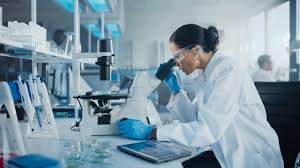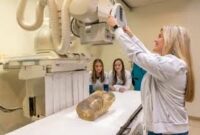In today’s fast-paced healthcare environment, the demand for skilled laboratory technicians is on the rise. Lab tech training programs provide the essential knowledge and practical skills required for aspiring professionals looking to enter this vital field. This comprehensive article will delve into the various aspects of lab tech training programs, including their importance, types, curriculum, and career opportunities.
Table of Contents
- Understanding Laboratory Technology
- What is Laboratory Technology?
- Importance of Laboratory Technicians in Healthcare
- Overview of Lab Tech Training Programs
- Types of Lab Tech Training Programs
- Accrediting Bodies and Certification
- Curriculum of Lab Tech Training Programs
- Core Subjects and Skills
- Hands-on Training and Laboratory Experience
- Admissions Process and Requirements
- Prerequisites for Enrollment
- Application Process and Tips
- Career Opportunities and Job Outlook
- Job Roles of Laboratory Technicians
- Salary Expectations and Job Growth
- Continuing Education and Professional Development
- Importance of Lifelong Learning
- Advanced Certifications and Specializations
- Case Studies and Success Stories
- Real-life Examples of Successful Lab Technicians
- The Impact of Lab Tech Training on Career Advancement
- Conclusion
- The Future of Lab Tech Training Programs
- Encouragement for Aspiring Laboratory Technicians
1. Understanding Laboratory Technology
What is Laboratory Technology?
Laboratory technology encompasses a wide range of scientific practices, techniques, and tools used in laboratories to conduct tests and analyses. Laboratory technicians play a critical role by performing tests on various biological samples, including blood, tissue, and other bodily fluids, to assist in diagnosing diseases, monitoring health, and conducting research. This field combines elements of biology, chemistry, and technology, requiring technicians to be proficient in operating complex laboratory equipment and interpreting results.
Importance of Laboratory Technicians in Healthcare
Laboratory technicians are indispensable in the healthcare system. They provide crucial data that informs medical decisions, influences treatment plans, and contributes to patient outcomes. According to the Bureau of Labor Statistics, laboratory technicians perform over 300 different types of tests, ranging from routine urinalysis to complex genetic testing. Their expertise ensures that results are accurate, timely, and reliable, which directly impacts patient care.
2. Overview of Lab Tech Training Programs
Types of Lab Tech Training Programs
Lab tech training programs come in various formats, including:
- Associate Degree Programs: Typically lasting two years, these programs provide foundational knowledge in laboratory technology, including both theoretical and practical training.
- Bachelor’s Degree Programs: A four-year degree that offers a more comprehensive education, including advanced coursework in laboratory techniques, management, and research.
- Certificate Programs: Shorter programs focused on specific skills or areas of laboratory technology, ideal for individuals looking to enhance their qualifications or for those entering the field from another career.
- Online Training Programs: Many institutions now offer online courses that provide flexibility for students, allowing them to balance work and study commitments.
Accrediting Bodies and Certification
Accreditation is crucial when selecting a lab tech training program. Accredited programs meet specific educational standards set by recognized organizations, ensuring that graduates are well-prepared for the workforce. The National Accrediting Agency for Clinical Laboratory Sciences (NAACLS) is one such organization that accredits laboratory science programs. Graduating from an accredited program may also be a prerequisite for certification exams, such as those offered by the American Society for Clinical Pathology (ASCP) and the National Credentialing Agency for Laboratory Personnel (NCA).
3. Curriculum of Lab Tech Training Programs
Core Subjects and Skills
Lab tech training programs cover a broad array of subjects essential for effective practice in the field:
- Clinical Microbiology: Understanding pathogens, their identification, and implications for healthcare.
- Hematology: Study of blood components, disorders, and diagnostic procedures.
- Clinical Chemistry: Analysis of bodily fluids for chemical components and their implications for health.
- Immunology: Exploration of the immune system and its role in disease detection and prevention.
- Laboratory Management: Skills related to managing laboratory operations, including quality control and safety protocols.
Hands-on Training and Laboratory Experience
A significant component of lab tech training is hands-on experience. Many programs incorporate laboratory practicums or internships, providing students with opportunities to apply their skills in real-world settings. This experiential learning helps students to:
- Develop technical skills in operating laboratory equipment.
- Understand safety protocols and laboratory best practices.
- Gain experience working within a healthcare team.
4. Admissions Process and Requirements
Prerequisites for Enrollment
Most lab tech training programs require specific prerequisites for admission, including:
- A high school diploma or equivalent.
- Coursework in biology, chemistry, and mathematics.
- Some programs may require standardized test scores (e.g., ACT or SAT).
Application Process and Tips
The application process typically involves submitting an application form, transcripts, letters of recommendation, and a personal statement. Here are some tips for prospective students:
- Research Programs: Understand the specific requirements and focus areas of different programs.
- Prepare for Interviews: Some programs may require an interview as part of the admissions process.
- Highlight Relevant Experience: Include any relevant volunteer work, internships, or job experience related to laboratory work.
5. Career Opportunities and Job Outlook
Job Roles of Laboratory Technicians
Graduates of lab tech training programs can pursue various roles in the healthcare sector, including:
- Clinical Laboratory Technician: Performing tests and analyses in hospitals or medical labs.
- Medical Technologist: Conducting complex tests and interpreting results, often requiring a bachelor’s degree.
- Laboratory Supervisor: Overseeing laboratory operations and personnel.
- Research Technician: Assisting in scientific research projects in academic or corporate settings.
Salary Expectations and Job Growth
According to the U.S. Bureau of Labor Statistics, the median annual wage for clinical laboratory technologists and technicians was approximately $54,180 in 2022. The job outlook for this profession is promising, with a projected growth rate of 11% from 2022 to 2032, which is faster than the average for all occupations. This growth is driven by an aging population and an increasing emphasis on laboratory testing in diagnosing and monitoring diseases.
6. Continuing Education and Professional Development
Importance of Lifelong Learning
The field of laboratory technology is continually evolving, with new technologies and techniques emerging regularly. Continuing education is essential for laboratory technicians to stay current with advancements and maintain their licensure and certifications. Many states require continuing education credits for license renewal, emphasizing the importance of lifelong learning in this profession.
Advanced Certifications and Specializations
Laboratory technicians may choose to pursue advanced certifications to enhance their expertise and career prospects. Specialization areas include:
- Molecular Biology: Focused on genetic testing and analysis.
- Transfusion Medicine: Specializing in blood banking and transfusion services.
- Clinical Chemistry: In-depth knowledge of chemical analyses in clinical settings.
7. Case Studies and Success Stories
Real-life Examples of Successful Lab Technicians
Many laboratory technicians have achieved remarkable success in their careers, showcasing the potential of this profession. For example, Sarah, a graduate of a lab tech training program, started as a technician in a hospital laboratory. Through continuous education and gaining certifications, she moved up to a supervisory role, where she now leads a team of technicians and is involved in quality assurance and lab management.
The Impact of Lab Tech Training on Career Advancement
Lab tech training programs provide the foundation for a successful career in laboratory technology. Graduates who actively pursue further education and certifications often find themselves with more significant job opportunities, higher salaries, and increased job satisfaction. As highlighted in various success stories, the initial investment in education pays off through career advancement and personal growth.
8. Conclusion
The Future of Lab Tech Training Programs
The future of lab tech training programs looks bright, with increasing demand for skilled technicians in various healthcare settings. As technology continues to advance, training programs will adapt to incorporate new tools and techniques, ensuring that graduates are well-equipped to meet the challenges of the evolving healthcare landscape.
Encouragement for Aspiring Laboratory Technicians
If you are considering a career as a laboratory technician, now is an excellent time to explore training programs and take the first step toward a fulfilling career. With dedication, continuous learning, and the right training, you can play an essential role in healthcare and contribute to improving patient outcomes.
This comprehensive guide serves as a foundational resource for anyone interested in pursuing lab tech training programs. With the right education and training, you can embark on a rewarding career that makes a significant impact in the healthcare field.


